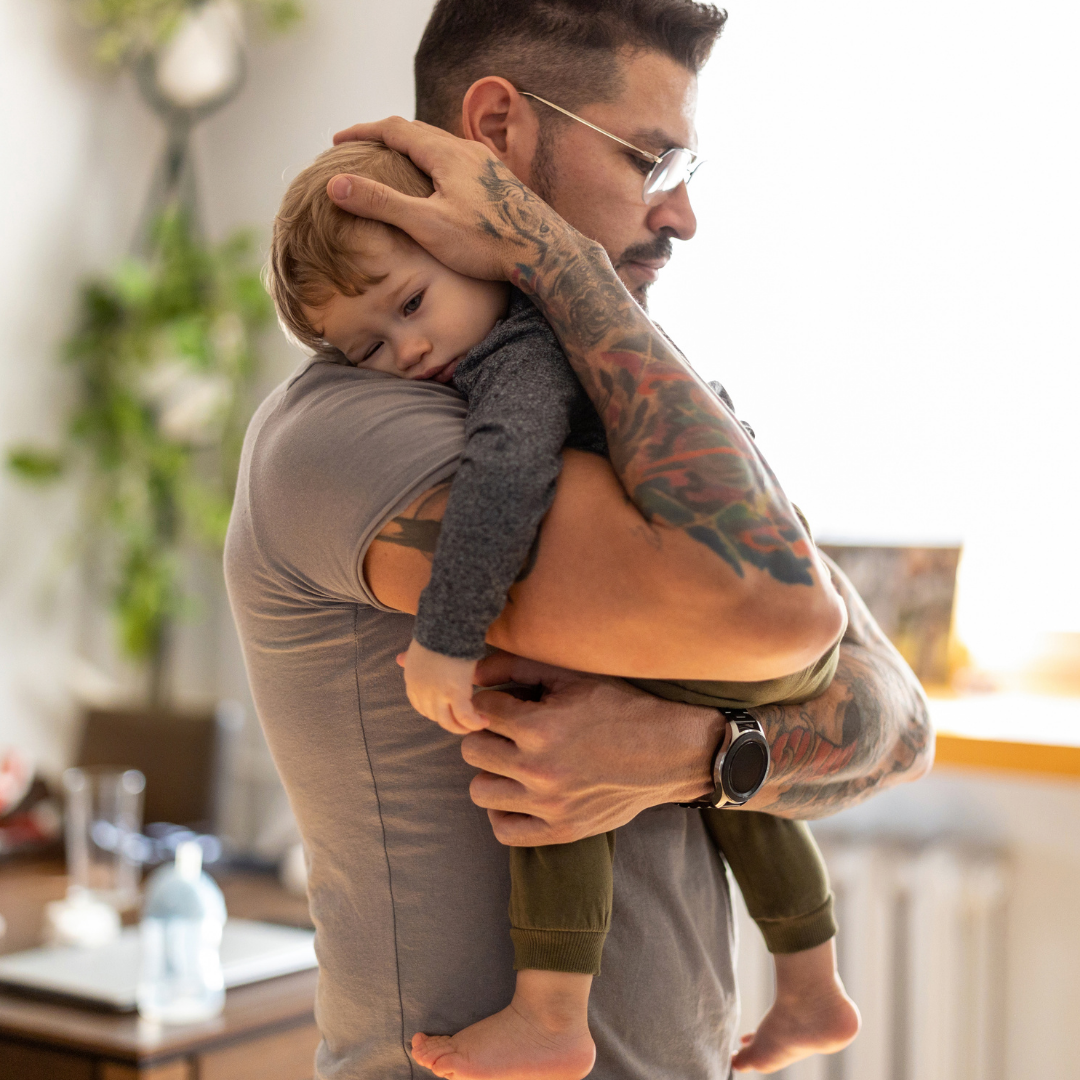A Circle of Support for New Dads
By Melanie Weiner, LMFT
Program Director, New Parents Connect

It’s not that fathers don’t need support—it’s that they’re less acculturated to actively seek it out, especially in group settings that center on emotional sharing and vulnerability.
Our work began 17 years ago with New Moms Connect postpartum support groups, recognizing the challenges of new mothers in the postpartum period. But in 2021, amid the pandemic’s upheaval, we made a deliberate shift to New Parents Connect. This wasn’t simply a name change—it was an acknowledgment that the transition to parenthood affects whole families, and that fathers, in particular, have been overlooked in conversations about perinatal mental health and support.
The statistics tell a compelling story: while perinatal mood and anxiety disorders (PMADs) affect mothers at well-documented rates, fathers experience depression and anxiety during the perinatal period at significant rates too. Yet society’s lens remains largely focused on the birthing parent. It is more common to ask mothers how they’re doing and create spaces for them to connect, such as “mommy and me” and breastfeeding support groups.
Fathers, meanwhile, often find themselves on the periphery, expected to be strong, supportive, and somehow naturally equipped to navigate their own transition to parenthood without the same level of attention.
The Challenge of Connection
What we’ve discovered through New Dads Connect is both revealing and affirming. While our fathers’ groups are harder to fill than our mothers’ groups, the fathers who participate show notable consistency in attendance. The pathway to our group often begins with encouragement from partners rather than self-referral. This pattern illuminates something important about how men are socialized around help-seeking, particularly during vulnerable life transitions. It’s not that fathers don’t need support—it’s that they’re less acculturated to actively seek it out, especially in group settings that center on emotional sharing and vulnerability.

Our recent focus group with New Dads Connect participants were revealing: the fathers told us that they genuinely want to talk to other fathers. They described their experience in our group as rare, even unprecedented—a space that exists “just for them.”
What Fathers Really Want
Their wishes extend beyond group sessions. These new fathers want to connect with each other outside of group and form friendships. However, they need help making these connections happen. Unlike their partners, who might more naturally organize playdates or attend mothers’ groups, fathers often lack the social scripts for creating their own support networks.
In the early parenting stage, in which fathers sometimes play a supporting but not “starring” role, we create a place where their experiences take center stage.

The Power of Intentional Space
What New Dads Connect provides is something deceptively simple yet powerful: intentional space. In the early parenting stage, in which fathers sometimes play a supporting but not “starring” role, we create a place where their experiences take center stage.
The fathers in our groups discuss everything from sleep deprivation and relationship changes to career concerns and identity shifts. They share the overwhelming love they feel for their children alongside the anxiety about their ability to be good fathers. They talk about whether they are doing enough, feeling uncertain about their role, and sometimes feeling quite isolated.
The consistent attendance we see in New Dads Connect groups speaks to the desire for this kind of connection. They show up. They participate. They form bonds that extend beyond our program’s timeline. Our role becomes not just providing the initial framework for connection, but helping facilitate the organic relationships that emerge between participants.
Looking Forward
As we continue to develop New Dads Connect, we’re reminded that creating inclusive perinatal support means recognizing that all parents deserve attention and community during this transition.
This Father’s Day, we acknowledge not just the fathers in our community, but the reality that supporting new fathers benefits entire families and communities. When any parent has access to community and emotional support, it strengthens the whole family system.
New Dads Connect represents our commitment to ensuring that no parent navigates this transformative journey alone, regardless of gender. Because every parent deserves a community that includes them, supports them, and recognizes the essential work of raising children.
Information about JFSLA New Dads Connect can be found at jfsla.org/newparentsconnect or by emailing newparentsconnect@jfsla.org.